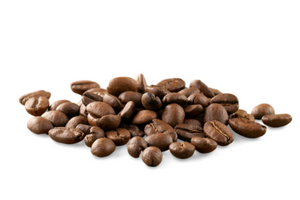Cuppa Joe: Yes or No?
Posted on by By Karen Sabbath, MS, RD, CSO
The lines of cars outside Dunkin Donuts and Starbucks every morning attest to America’s love affair with coffee. In fact, 64% of Americans drink just over three cups of coffee a day, for a total of 400 million cups consumed daily.
 What is it about coffee that makes so many of us crave it? The first thing that usually comes to mind is caffeine, a stimulant that can make you feel more awake and alert. In fact, 75% of all caffeine consumed is from coffee. But coffee also contains hundreds of nutrients and phytochemicals including polyphenols, trigonelline, melanoidins, magnesium, potassium, and vitamin B. These compounds act as antioxidants and can improve health and metabolism. While the majority of adults drink coffee as their primary source of caffeine, others drink tea or soft drinks, both of which provide caffeine. Although tea has many antioxidants, most soft drinks contain only sugar.
What is it about coffee that makes so many of us crave it? The first thing that usually comes to mind is caffeine, a stimulant that can make you feel more awake and alert. In fact, 75% of all caffeine consumed is from coffee. But coffee also contains hundreds of nutrients and phytochemicals including polyphenols, trigonelline, melanoidins, magnesium, potassium, and vitamin B. These compounds act as antioxidants and can improve health and metabolism. While the majority of adults drink coffee as their primary source of caffeine, others drink tea or soft drinks, both of which provide caffeine. Although tea has many antioxidants, most soft drinks contain only sugar.
Although always a popular beverage, there was a time when coffee was considered to be potentially damaging to health, but analysis of data did not substantiate these claims. Based on current research, coffee consumption has been linked to reduced risk of many ailments including Parkinson’s disease, heart disease, type 2 diabetes, gallstones, depression, suicide, cirrhosis and cancers of the liver, prostate, endometrium/uterine, and melanoma.
Studies conducted worldwide have shown that people consuming three to five 8-ounce cups of coffee (keep in mind that most coffee mugs contain 10-16 ounces) containing a total of about 100 mg/8 oz. serving, depending on the variety of coffee bean, or 400 mg caffeine, had reduced death rates, with coffee drinkers being less likely to die from all causes. And coffee counts towards your hydration requirements.
Keep in mind that these epidemiological studies are typically based on self-reports from the participants over time, while tracking disease incidence. This means that there appears to be a “strong positive correlation or association” between caffeine/coffee intake and improved incidence of various health issues, but a direct cause and effect has not been proven.
 So, should we all run out and start guzzling coffee? As is often the case, too much of good thing may not be such a good thing. There are situations that warrant restricting or eliminating your caffeine intake. These include breastfeeding and pregnancy, where caffeine has been shown to cross the placenta and increase the risk of miscarriage, low birth weight, and premature birth.
So, should we all run out and start guzzling coffee? As is often the case, too much of good thing may not be such a good thing. There are situations that warrant restricting or eliminating your caffeine intake. These include breastfeeding and pregnancy, where caffeine has been shown to cross the placenta and increase the risk of miscarriage, low birth weight, and premature birth.
Safe levels are thought to be less than 200 mg (the amount in two 8-oz. servings) daily. Decaffeinated coffee is fine. Excessive coffee can also worsen anxiety or rapid heartbeat in some people. If you suffer from sleep disturbances like insomnia, you may want to drink your coffee early in the day, only occasionally, or not at all.
Bottom Line: Drinking coffee can definitely be a part of your healthy diet. Be sure to incorporate other factors of a healthy lifestyle that have a positive impact on your health: eating a balanced diet with lean proteins, lots of fruits, vegetables, whole grains, and healthy fats; staying away from processed foods and excessive sugar; and exercising and keeping your weight in a healthy range.
What You Add Adds Up
Not all coffee drinks are created equal. Black coffee gives you all the nutritional benefits, but when you start adding the flavorings, sugar, and fats, like cream, you can offset all the benefits. Here is an example to compare:
| Medium Dunkin Donuts Pumpkin Swirl Frozen Coffee with Cream | Medium Dunkin Donuts Coffee with Whole Milk |
|
| Calories: | 890 | 30 |
| Fat: | 31 gm, 17 gm saturated* fat (equivalent to eating a 7-oz. steak) | 1.5 gm, 1 gm saturated* fat |
| Cholesterol: | 100 mg | 5 mg |
| Sugar: | 128 grams (close to ¾ cup!) | 2 mg |
*Unhealthy
Questions about nutrition? Contact nutritionist Karen Sabbath, MS, RD, CSO, at ksabbath@leevercancercenter.org or 203-575-5510.
